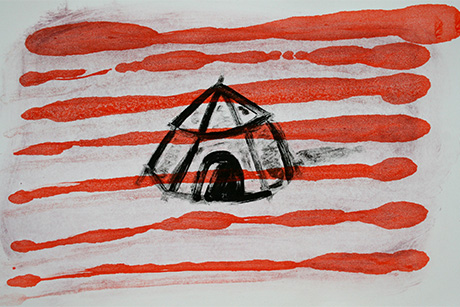Humanities scholars explore 'Occupation' theme
By Daniel Aloi

Fellows at the Society for the Humanities and guest scholars will discuss the concept of occupation – and how it has shaped the humanities – at a conference April 18-19 at the A.D. White House.
The event, “Occupation: A Critical Problematic for the Humanities,” is related to the society’s 2013-14 focal theme, “Occupation: From Space and Time to Practice and Politics.”
The conference includes a roundtable discussion of new approaches to research on the topic, April 18 at 4 p.m., and a full day of panels, with keynote talks by visiting scholars, society fellows and Cornell faculty as respondents, and an open forum in lieu of closing remarks, April 19.
Society fellows are investigating the cultural, social, artistic, philosophical and political implications of the theme, as well as how historical events of occupation have relied on or shaped the humanities.
Fellows engage with a different focal theme each year. In addition to themes that address aesthetic concerns and artistic practices, such as the work on “Sound” in 2011-12, the themes also emphasize the humanities’ engagement with social concerns and the need to address pressing ethical and political issues of the time.
“This year’s focal theme does just that, placing ‘Occupation’ at the center of broad-ranging, interdisciplinary discussions carried on by our visiting and faculty fellows,” said Brett de Bary, interim director of the Society for the Humanities.
The work covers “an amazing range of different contexts,” de Bary said. “Political theorist Jodi Dean’s research project, ‘The Desire of the Crowd,’ takes up events as contemporary as the recent Occupy Wall Street protests, considering their implications as a new social movement,” she said.
“Literary scholar Jordana Rosenberg, on the other hand, presents a perspective on occupation going back to the 1800s, tracing enclosures and revolts against them depicted in Atlantic and American fiction,” de Bary said, while legal studies scholar Irus Braverman is studying “how animals are treated in ‘captivity’ versus ‘the wilderness’ in today’s global conservation movements.”
The keynote speakers, who were chosen by society fellows as leading figures in new scholarship on occupation, are J. Keihaulani Kauanui of Wesleyan University, whose work is on occupation and indigenous peoples, especially in Hawaii; filmmaker and New York University professor Helga Tawil-Souri, who has done pioneering work on digital occupation in Israel-Palestine; and Fred Moten of the University of California, Riverside, known for his writings on music and black radicalism.
The conference is intended “to be both provocative and experimental,” de Bary added. An open forum, held in the “Particular Assembly” format developed and practiced by recent occupy movements, will close the conference.
“This has been an inspiring year for me at the society, because it has brought me into contact with younger scholars who are working with great intensity and rigor on articulating new paradigms for a changing world,” de Bary said. “The theme has demanded a challenging rethinking of many assumptions.”
Media Contact
Get Cornell news delivered right to your inbox.
Subscribe